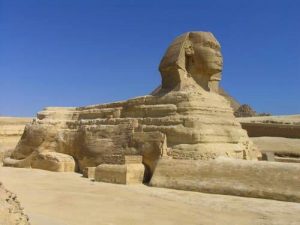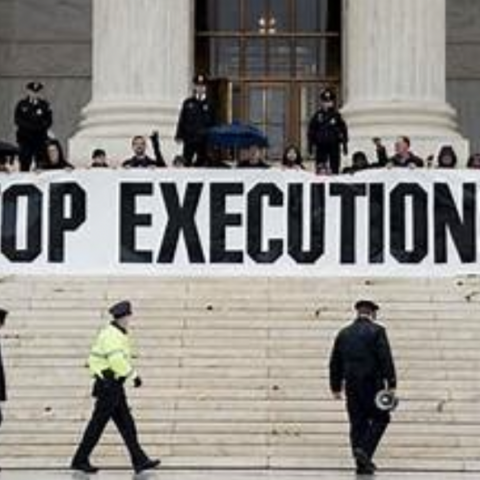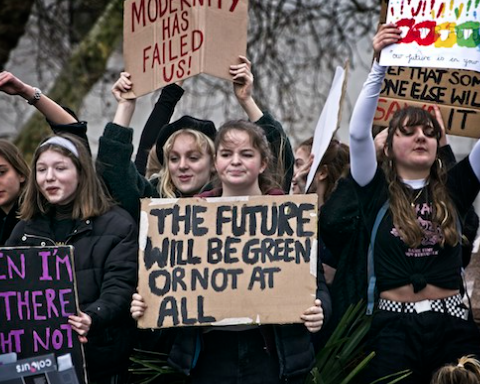By: Virginia McNally
Students of Egyptian history are aware of the ancient “intermediate periods” –times of upset, conflict, or a break from the usual pattern of Pharaoh rule. Twice in ancient Egyptian history, intermediate periods rocked society and caused general instability for all Egyptians. The first intermediate period was caused partially by the end of the long rule of Pepi II, who outlasted his named successors, leaving behind no clear heir.
The revolution and democratization process of the 21st century AD are similar to the events of the first intermediate period of the 22nd and 21st centuries BC. A longstanding ruler now ousted has left a power vacuum with no mechanism for naming a successor. Determining the next “pharaoh” will be a challenge, and the new rules of succession have already created a few roadblocks. On April 15, ten of Egypt’s 23 presidential candidates were disqualified by the electoral council, which was established by the Supreme Council of the Armed Forces (SCAF). Out of those ten, there are three particularly popular candidates expelled because of rules meant to keep their individual competitors out. These were Omar Suleiman, Khairat el-Shater and Hazem Salah Abu Ismail.
Suleiman, Egypt’s former spy chief who announced Mubarak’s surrender of power last year, was disqualified based on his lack of adequate support, which was determined by the SCAF in January to be the signatures of 30 MPs or 30,000 citizens. Suleiman announced his candidacy relatively late compared to the other candidates, and he had little time to get citizen’s signatures.
At first many were skeptical about the reality of Suleiman’s results. The election commission announced that he was only short by 31 signatures, but others say he was lacking over 10,000 signatures. The Freedom and Justice Party, the political party associated with the Muslim Brotherhood, has already passed a resolution through parliament making it illegal for members of the old regime to hold executive power, but it remains to be seen whether it will be adopted by the SCAF and upheld in court. Regardless, Suleiman has already been burned by a rule meant to exclude ultraconservative or ultraliberal parties with smaller bases of support. These rules were put in place during the Mubarak period to prevent any challenges to the government, but now that popular support is easy to gather in a new period of political participation, Suleiman’s last minute attempt was made impossible by the technicality of a bygone era.
Although he has contested his expulsion from the presidential race, it remains to be seen whether he was disqualified because of a true lack of signatures or as a symbol to legitimize the authority of the SCAF. The Council has been accused by many to be a corrupt group of old generals unwilling to relinquish power to a newly democratically elected leader. By disqualifying Suleiman along with the more popular and radical candidates, the council could be saving its legitimacy while saving Egypt from a more Islamic Egyptian government.
Khairat el-Shater, the former leading strategist for the Muslim Brotherhood, was disqualified because he was convicted of political crimes during the Mubarak era and was only released from prison in March 2011. The SCAF declared that a candidate must have been released from prison at least six years before running for office. The Freedom and Justice Party will field another candidate to be sure, but Shater has contested the ruling by the election commission. Although the Freedom and Justice party has no official link with the Muslim Brotherhood (MB), which has vowed to never field a candidate for public office in order to preserve the legitimacy of the organization, the party has very strong and visible ties with MB. MB has the majority in Parliament after elections held late last year and early this year, which would indicate that the party is positioned to claim victory in the presidential election. However, this new upheaval in candidates will change the playing field in the month before the first round of elections.
Most notably, Hazem Salah Abu Ismail was gaining an unprecedented amount of momentum before he was expelled from the election. The election commission ruled that his mother was technically an American citizen, and the SCAF declared that a candidate cannot be a child of a non-Egyptian citizen. Salah will then not be allowed to run despite his clear anti-American sentiments. This law excluding him from candidacy was passed in the aftermath of Mubarak’s exit in order to prevent western infiltration into Egyptian politics and to keep the revolution from being hijacked by an external influence eager to protect its own interests in Egypt.
It is somewhat ridiculous that the electoral rules established to keep certain groups out of the running have in fact kept all popular leaders out of the running. The laws have not kept out the most popular candidates based on their ideologies, but on minor technicalities. In the past, rules have been put in place to keep radical right-wing parties out of politics, particularly in post-WWII West Germany. However, these laws were based on party ideology, not technicalities regarding ex-convict candidates or supporter signatures.
It is this kind of convoluted system that will make democratic transition more tenuous and dangerous, prolonging this intermediate period in Egyptian history. However, a clear set of rules and a transparent election authority will be necessary to facilitate a successful election. To what extent the SCAF may be manipulating the election is difficult to know at this point. This is a common problem with democratic transition: it does not always produce the most democratic outcomes, and the road to democracy is usually not democratic. Without proper election facilitating mechanisms, Egypt may be switching from pharaoh to pharaoh, unaccompanied by an institutional change that will serve to protect rights and liberties of Egyptians. It is true that Egyptians can rise up in the next month to determine which out of the candidates they support most, but if the candidate list is manipulated based on technicalities or the interests of the SCAF, this intermediate period will only self-perpetuate.

